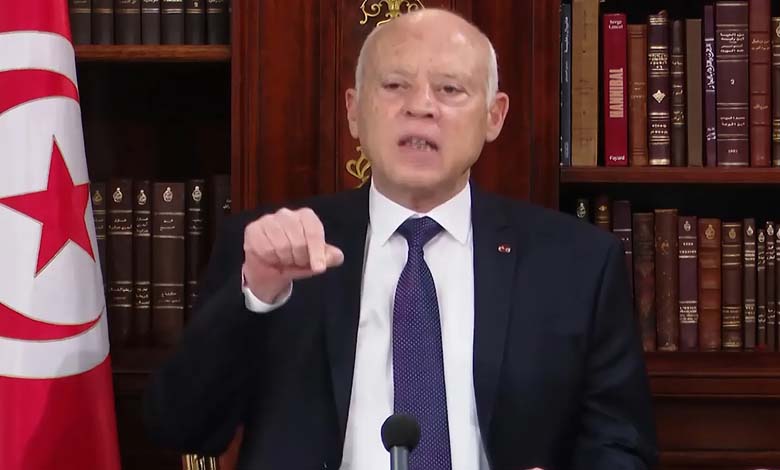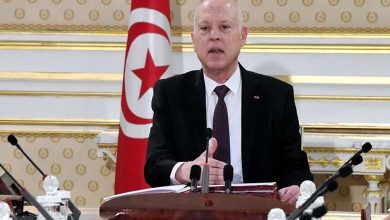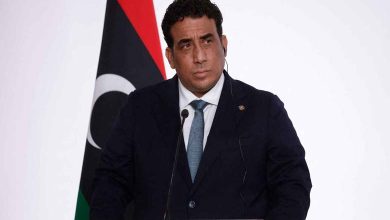Saied is determined to eliminate the Muslim Brotherhood in Tunisia… Details

Tunisian President Kais Saied is leading a serious effort to eliminate the Muslim Brotherhood through scrutiny of employment processes and academic qualifications. In the latest developments on the matter, he emphasized the need to expedite audits of appointments made outside of any legal framework, which resulted in the seizure of national group assets.
During a meeting with Prime Minister Ahmed Hashani on Thursday, Saied pointed out that assets of the national group were seized by those who considered authority as loot, from which they would take whatever they pleased and distribute to those who pledged allegiance to them, serving their own interests. This was a reference to the Muslim Brotherhood, who led the government in the years preceding Saied’s election as president.
President Saied issued a presidential decree on September 21 last year, which was recently activated, aimed at reviewing appointments in the government sector.
The law for reviewing appointments in government institutions aims to review appointments made based on “loyalties and fake qualifications.” The oversight committee consists of the Prime Minister, heads of governmental supervisory bodies, and three judges. The committees they appoint complete their work within two months from the start of their tasks.
The Interior Ministry was the first to begin the audit process, as it is among the ministries that were heavily infiltrated by beneficiaries of the so-called “general legislative pardon” during the last decade.
A decree known as the “general legislative pardon” issued on February 19, 2011, enabled the Ennahdha Movement to appoint around 7,000 employees, most of whom were affiliated with the Muslim Brotherhood, in governmental institutions. These appointments aimed to implement the principle of “empowerment,” one of the key principles of Islamist groups‘ ideology.
Furthermore, Tunisian President Kais Saied called for “saving government institutions, in particular, from the specter of bankruptcy after they were cleansed from those who infiltrated them without legal basis.”
He stressed that many government institutions and public companies, which used to generate profits, are now incapable of doing so due to corruption and a deliberate policy since the late 1980s to dispose of them.
Economic specialist Azeddine Saidane confirmed that the wage bill in Tunisia‘s budget has increased from 6 billion dinars (2 billion dollars) in 2010 to 23 billion dinars (7.6 billion dollars) in 2023, equivalent to 40% of the general budget’s size.
Saidane added that the significant increase in public sector employment and in several government companies has weighed down the wage bill to the extent that it has caused problems in the country’s public finances.
He revealed that he had access to official data and documents that proved the existence of around 120,000 files and certificates that did not comply with the conditions and standards applied in Tunisian administrations. This costs the state between 3 and 4 billion dinars, or 1 to 1.3 billion dollars annually. In other words, Tunisia has incurred losses of around 40 billion dinars, equivalent to 13.3 billion dollars, in the past decade, due to arbitrary appointments, according to his statement.












